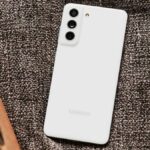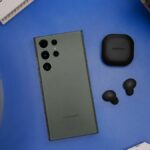
Everyone remembers that head scratching day back in September 2011 when Samsung announced the Galaxy Note. At the time, the largest phone on the market had a 4.3 inch screen, and many people thought it was too big. Samsung, being the crazy company they are, decided to go even bigger with the Note, which came in at 5.3 inches. The amount of ink spilled saying how stupid that device was could be measured in tanker ships, not barrels.
Fast forward to today and the GS4 is 5.0 inches, the 5.68 inch Note III is around the corner, and the biggest phone Samsung currently sells is the 6.3 inch Galaxy Mega. What do we call these oversized devices? Some have suggested “phablet”, a term that can simple be defined as half phone, half tablet. Whether or not this word is appropriate is a question that’s been asked repeatedly, but now we can finally lay this argument to rest.
Why? The Oxford English Dictionary, arguably the definite word on terms are and are not a part of the English language, has added the word “phablet” to their massive encyclopedia of words.
So let’s move on, shall we? Big phones are phablets, end of story.



















